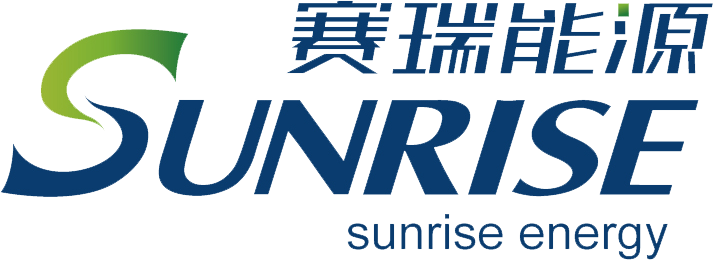Understanding Wellbore Isolation Valves: Essential Components for Safe Well Operations
Release time:
2024-12-17
The primary function of a Wellbore Isolation Valve is to provide a reliable means to isolate segments of the wellbore, allowing for operations such as pressure testing, workover activities, or the introduction of different fluids without risking contamination. By ensuring that fluids do not flow between isolated sections, WIVs contribute significantly to the overall safety of well operations. This isolation helps prevent the unwanted mixing of different fluids, which can lead to operational hazards or compromised well integrity.
Wellbore Isolation Valves come in various designs and configurations, tailored to meet the specific requirements of different well conditions. These valves can be mechanical, hydraulic, or even electronic, each offering unique advantages depending on the operational context. For instance, some designs allow for remote operation, which can enhance safety by minimizing the need for personnel to be in potentially hazardous environments.
WIVs are particularly essential in scenarios where pressure management is critical. In high-pressure wells, the ability to isolate sections can protect equipment from excessive pressure surges and allow for controlled depressurization. Additionally, during well abandonment procedures, these valves play a vital role in ensuring that fluids do not migrate to the surface, thereby protecting both the environment and public safety.
Maintenance of Wellbore Isolation Valves is also vital to their effective operation. Regular inspections and testing are necessary to ensure that these valves function correctly and reliably. Operators must follow best practices for maintenance, including checking for wear and tear, verifying the sealing mechanisms, and ensuring that control systems are operational. Failure to maintain these valves can lead to catastrophic failures, environmental hazards, and significant financial losses.
In summary, Wellbore Isolation Valves are indispensable in the modern oil and gas industry. They provide essential functionality that enhances the safety, efficiency, and integrity of wellbore operations. By understanding their role and ensuring proper maintenance, operators can significantly mitigate risks associated with well operations, ultimately contributing to a more sustainable and responsible industry. As the demand for energy continues to grow, the importance of WIVs in facilitating safe and effective drilling practices cannot be overstated.
Related News
Understanding Wellbore Isolation Valves: Key Components in Industrial Applications
In the realm of industrial equipment, particularly in the context of valves and accessories, Wellbore Isolation Valves (WIVs) play a crucial role in ensuring the integrity and safety of well operations. These valves are specifically designed to isolate sections of the wellbore, thus allowing operators to manage pressures, control fluids, and enhance overall system performance effectively. Wellbore
Exploring the Benefits of Wellbore Isolation Valves for Oil and Gas Operations
Exploring the Benefits of Wellbore Isolation Valves for Oil and Gas Operations Table of Contents 1. Introduction to Wellbore Isolation Valves 2. What Are Wellbore Isolation Valves? 3. Advantages of Using Wellbore Isolation Valves in Oil and Gas Operations 4. Applications of Wellbore Isolation Valves in the Oil and Gas Industry 5. The Technology Behind Wellbore Isolation Va
Understanding Wellbore Isolation Valves: Essential Components for Safe Well Operations
Wellbore Isolation Valves (WIVs) are critical components in the oil and gas industry, specifically designed to maintain the integrity and safety of wellbore systems during various operations. These valves serve as barriers within the well, enabling operators to isolate sections of the wellbore effectively. This capacity is crucial during drilling, completion, and maintenance processes, where contr
Unlocking Efficiency: The Role of Wellbore Isolation Valves in Drilling
Unlocking Efficiency: The Role of Wellbore Isolation Valves in Drilling Table of Contents 1. Introduction to Wellbore Isolation Valves 2. Importance of Wellbore Isolation in Drilling Operations 3. Types of Wellbore Isolation Valves 4. Functionality of Wellbore Isolation Valves 5. Benefits of Using Wellbore Isolation Valves 6. Applications of Wellbore Isolation Valves in the Industry
Understanding the Functionality and Importance of SHL Heel Packers in Oil Equipment
The SHL heel packer is designed specifically for use in well completion and intervention operations. Its primary function is to seal the well's annulus, a space between the well casing and the borehole. This sealing action is vital for preventing fluid migration and ensuring the safe and efficient extraction of hydrocarbons. By creating a reliable barrier, SHL heel packers help maintain the integr
The Connection Between SHL Heel Packers and Enhanced Drilling Techniques
The Connection Between SHL Heel Packers and Enhanced Drilling Techniques Introduction to SHL Heel Packers In the world of oil drilling, efficiency and reliability remain paramount. **SHL heel packers**, an innovative solution in the petroleum industry, have been making waves due to their ability to enhance drilling techniques significantly. These devices, designed to isolate specific sections of

